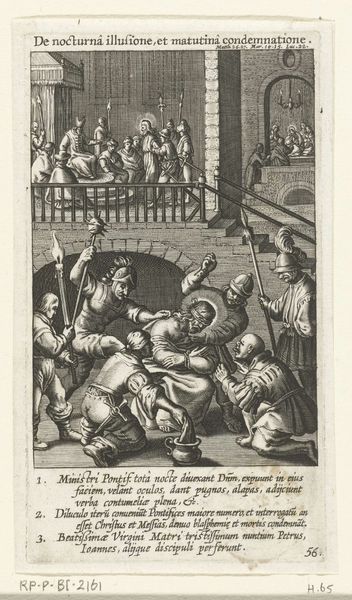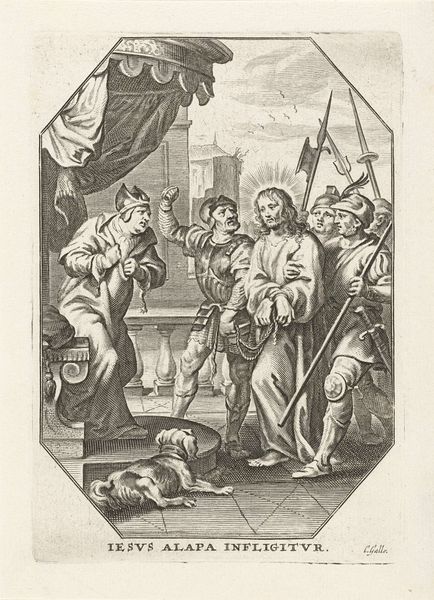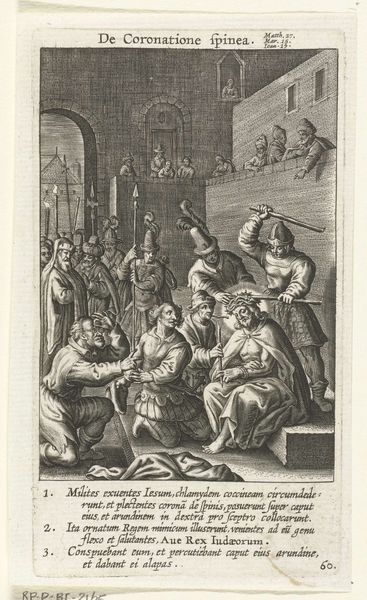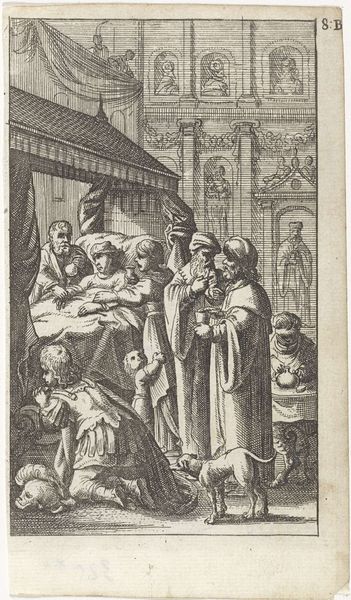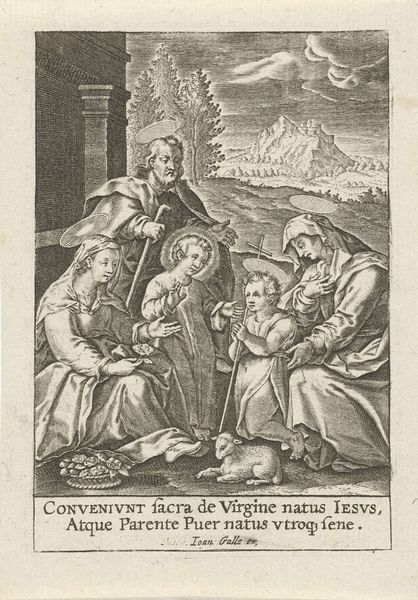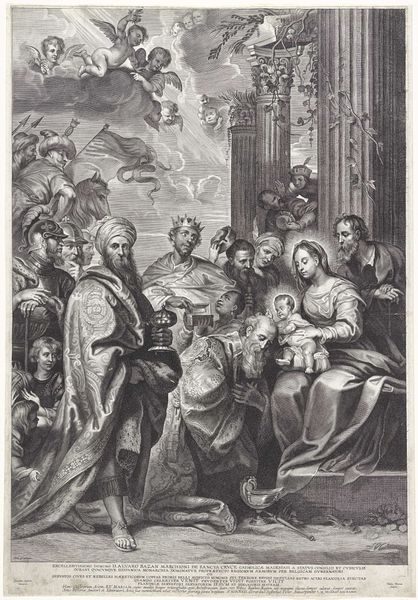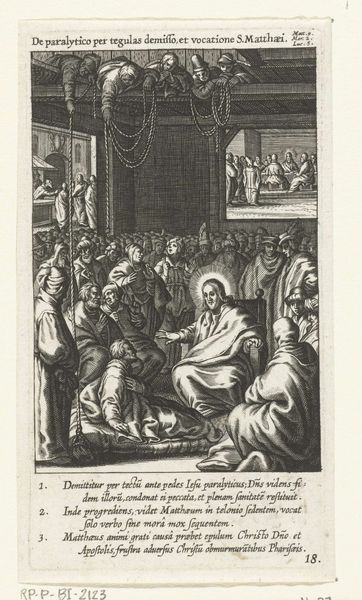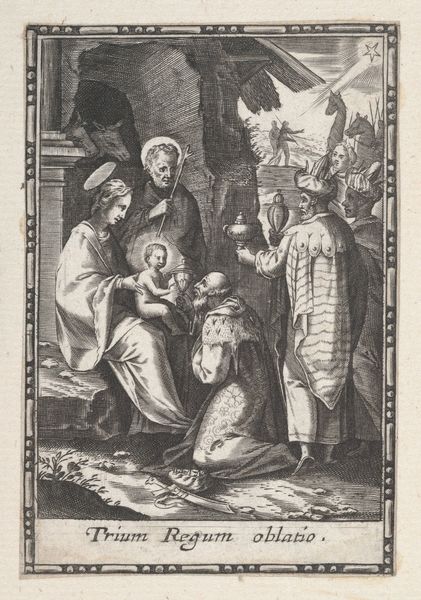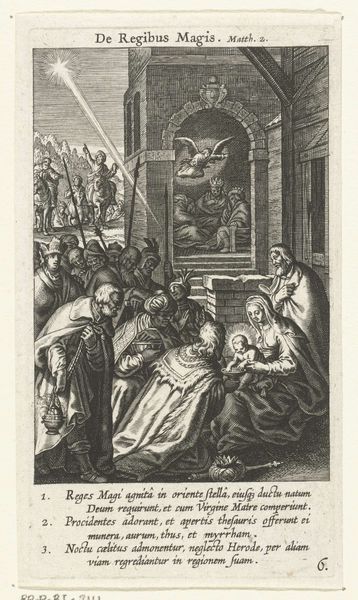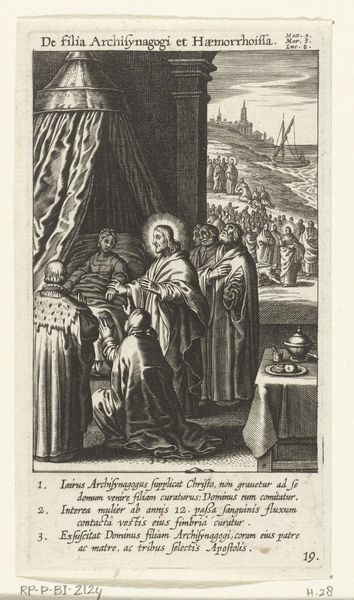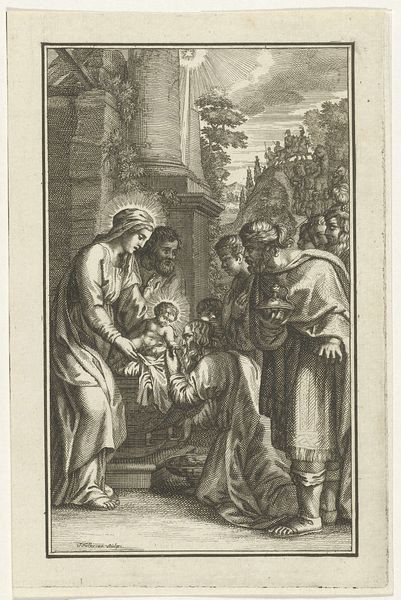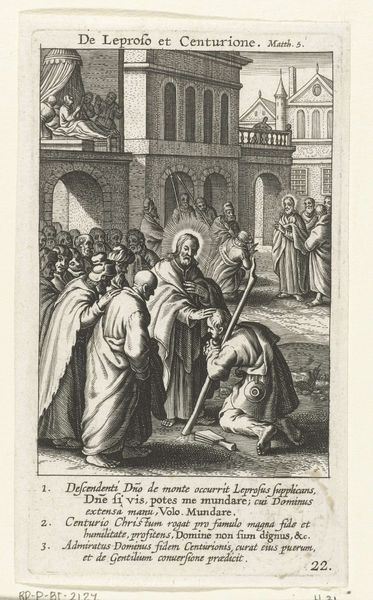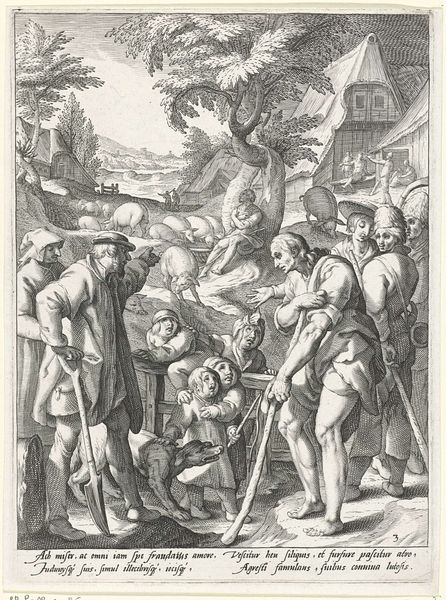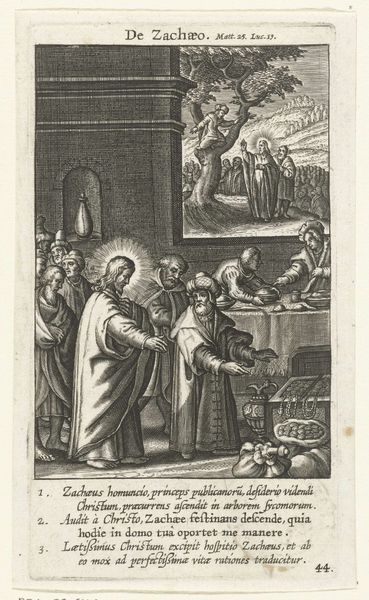
Christus verdrijft de geldwisselaars uit de tempel 1590 - 1622
0:00
0:00
boetiusadamszbolswert
Rijksmuseum
print, engraving
#
narrative-art
#
baroque
# print
#
old engraving style
#
figuration
#
pen-ink sketch
#
line
#
pen work
#
history-painting
#
engraving
Dimensions: height 133 mm, width 75 mm
Copyright: Rijks Museum: Open Domain
Editor: Here we have Boëtius Adamsz. Bolswert's engraving, "Christus verdrijft de geldwisselaars uit de tempel," dating from between 1590 and 1622. The scene is incredibly busy and chaotic. What stands out to you in terms of visual storytelling? Curator: It is, indeed, a vibrant scene teeming with both religious and cultural significance. Look at how Bolswert uses light—or the lack thereof, given the engraving medium—to create symbolic emphasis. Christ, at the center, is a beacon of righteous anger, pushing back against the corruption within the sacred space. Consider the Temple as a stage where this drama unfolds. The visual language pulls from familiar cultural scripts, staging Christ as the restorer of purity and divine order. It reflects anxieties about societal corruption through biblical narrative. What does the presence of the children suggest to you? Editor: It strikes me as interesting; in such a moment of fury, they are there. Are they meant to signify innocence amidst all this... chaos? Curator: Precisely. Their presence introduces the idea of purity and a future cleansed of corruption. They embody hope and, through their potential for unadulterated faith, a tacit rebuke of the adults embroiled in the scene’s disruption. What emotional weight do you think this interplay of light and innocence against the darkness of greed carries for a viewer of the time? Editor: It feels incredibly charged and immediate; the idea of rooting out corruption, but with a sense of hope for renewal... Curator: Precisely. The enduring appeal lies in its dramatization of universal themes – moral outrage, the fight against injustice, and the promise of redemption. It prompts introspection regarding how we perpetuate or combat such dynamics in our own spheres. Editor: I see the work very differently now, thank you!
Comments
No comments
Be the first to comment and join the conversation on the ultimate creative platform.
